TikTok has been a focus of concern in the United States for years now, primarily due to national security and data privacy issues. While there have been numerous attempts to ban the app, the first real threat to its fate came in April when President Joe Biden signed a bill forcing TikTok to find a new owner within a year or face a ban—setting the stage for a potential showdown between the company and the US government.
But what does this for you, the regular TikTok user? We drilled down to find out because, well, the attorneys and legal professionals at Varghese Summersett use TikTok, too. (Follow us on VersusTexas!)
For starters, if there is a TikTok ban, the app will not just suddenly disappear from your phone one day. You also will not get arrested if you continue using it if it gets banned. Keep reading to learn more about the proposed U.S. TikTok ban.
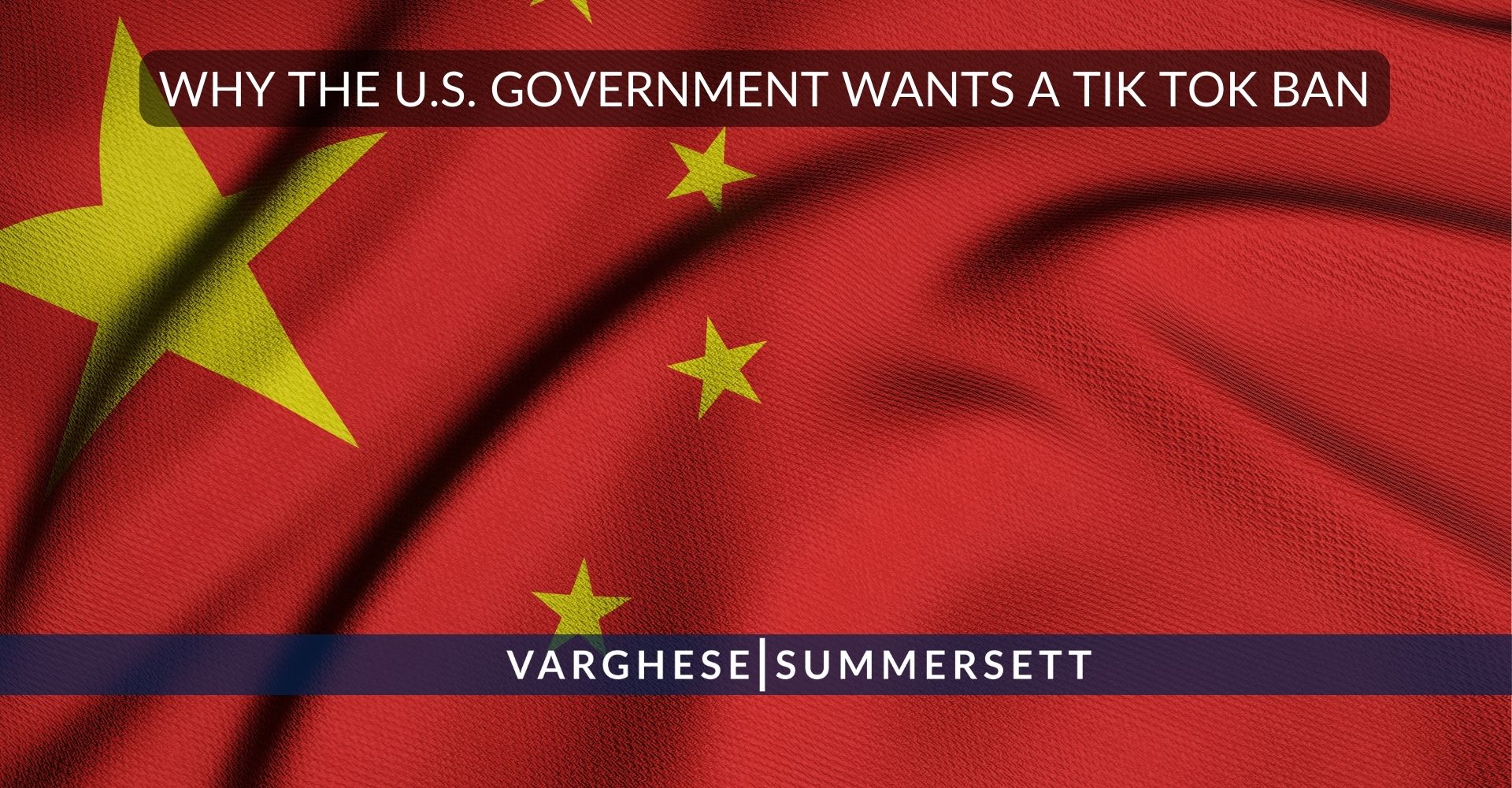
Why the U.S. Government Wants to a TikTok Ban
The U.S. government wants to ban TikTok primarily due to national security concerns. Here are the key reasons:
- Data security: There are concerns that ByteDance, TikTok’s Chinese parent company, could be compelled by the Chinese government to share American citizens’ user data. This worry stems from Chinese national security laws that require organizations to cooperate with intelligence gathering.
- Potential for surveillance: U.S. officials, including FBI Director Christopher Wray, have warned that the Chinese government could potentially use TikTok to surveil Americans through their devices.
- Information manipulation: There are fears that the Chinese government could covertly influence the U.S. public by manipulating TikTok’s algorithm to amplify or suppress specific content.
- Data collection practices: Some lawmakers argue that TikTok collects excessive amounts of user data, which could be exploited.
- Influence on young users: Senators like Marco Rubio have expressed concerns about China’s ability to influence young Americans who use TikTok as their primary news source.
- Lack of transparency: There are worries about the opacity of TikTok’s operations and its relationship with the Chinese government.
- Precedent in other countries: Several other nations have already implemented partial or full bans on TikTok, particularly on government devices.
The U.S. government is concerned about China’s involvement in TikTok data collection, fearing it could lead to the spread of false information, enhanced war strategies, and increased access to sensitive information about U.S. citizens.
It’s important to note that these concerns are contested by TikTok and some civil rights groups. TikTok denies being beholden to the Chinese government and argues that banning the app would infringe on users’ First Amendment rights. Critics of the ban also point out that other social media platforms have similar data collection practices and addictive algorithms.
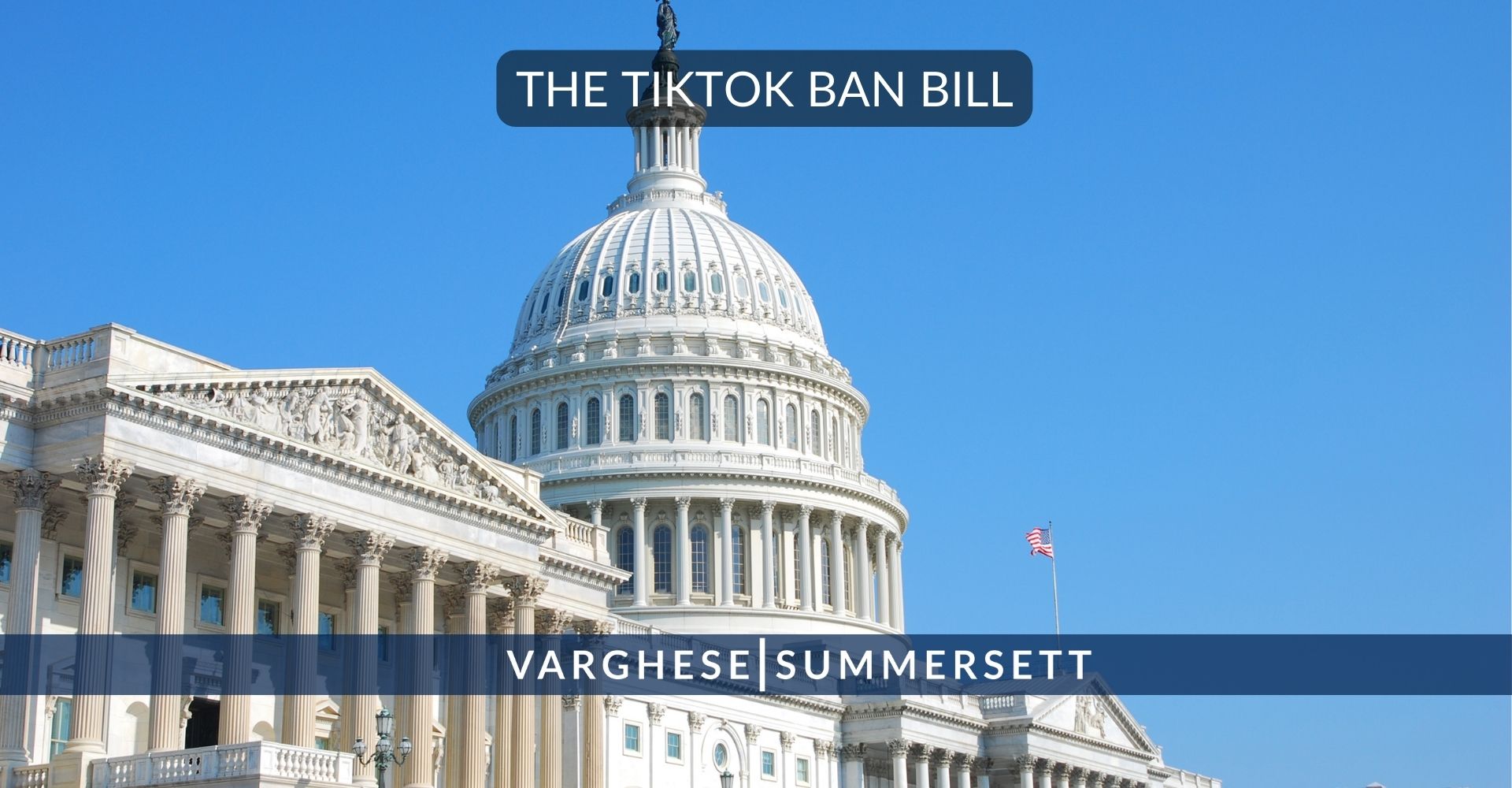
The TikTok Ban Bill
President Joe Biden recently signed legislation that could potentially lead to a nationwide TikTok ban in the United States. This legislation is part of a broader foreign aid package supporting Israel and Ukraine, and it specifically targets TikTok’s Chinese parent company, ByteDance.
The bill gives TikTok’s parent company, ByteDance, 270 days (approximately nine months) to sell the app to a company not controlled by a “foreign adversary.” This deadline could be extended by an additional 90 days at the President’s discretion if progress is made towards a sale.
Should ByteDance fail to sell TikTok within the given timeframe, the app will then be banned from U.S. app stores and the internet providers that support it.
The legislation has sparked debates about free speech, data privacy, and the U.S. government’s role in regulating social media platforms.
When Will The Potential Ban Go Into Effect?
The earliest a ban could take effect is January 19, 2025, with a possible extension to April 2025. TikTok has expressed intentions to challenge the legislation in court, citing concerns over free speech rights which could potentially delay the ban.
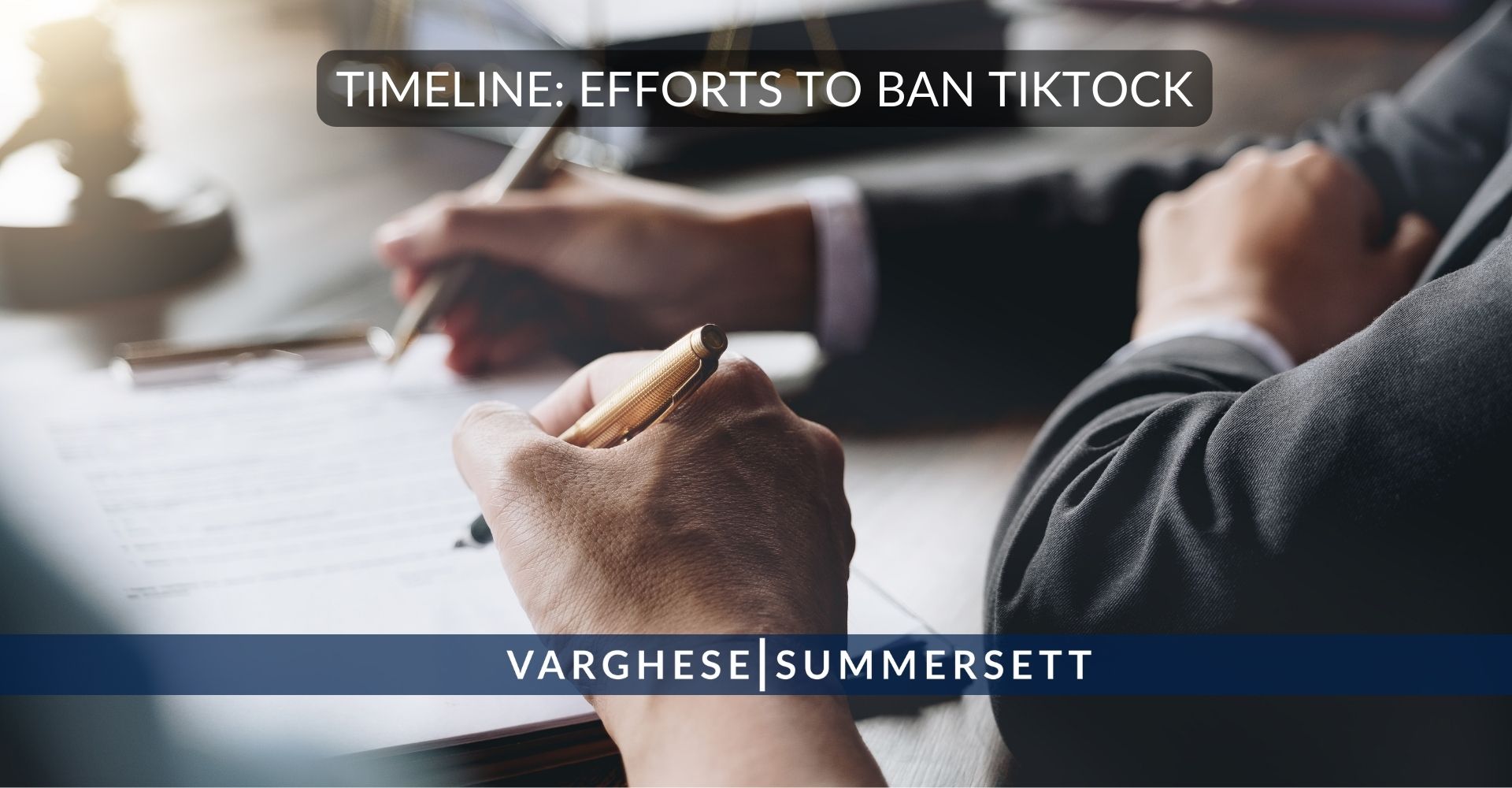
U.S. Efforts to Ban or Restrict TikTok: A Timeline
In response to mounting concerns over data security and potential Chinese government influence, the United States has undertaken significant measures to ban or restrict the use of TikTok across various sectors, including federal and state governments, educational institutions, and even within the military. These efforts, culminating in recent legislation mandating the app’s sale to non-Chinese owners, reflect a growing unease about the popular social media platform’s impact on national security. Here’s a timeline:
- Federal Government Actions:
-
- January 2020: The U.S. Army and Navy banned TikTok on government devices, citing security risks.
- 2020: The Trump administration attempted to ban TikTok over national security concerns.
- 2023: U.S. authorities ordered the deletion of TikTok from federal devices and systems due to data security concerns.
-
- April 2023: At least 34 states have announced or enacted bans on TikTok for state agencies, employees, and contractors using government-issued devices.
- Educational Institutions:
-
- Numerous public universities have banned TikTok on campus Wi-Fi and university-owned computers.
- Recent Legislative Efforts:
-
- April 2024: The U.S. Senate passed legislation to ban TikTok, which was signed into law by President Biden. The law mandates ByteDance, TikTok’s parent company, to sell the app to non-Chinese owners within 270 days or face a nationwide ban.
- Other Restrictions:
-
- Congress and the U.S. armed forces have banned TikTok from official devices.
- August 2023: New York City banned TikTok on government-owned devices for security reasons.
These efforts are primarily driven by concerns over data security, privacy, and potential Chinese government influence. However, they have faced criticism and legal challenges, with some arguing that the bans infringe on free speech rights and fail to address broader data privacy issues across all social media platforms.
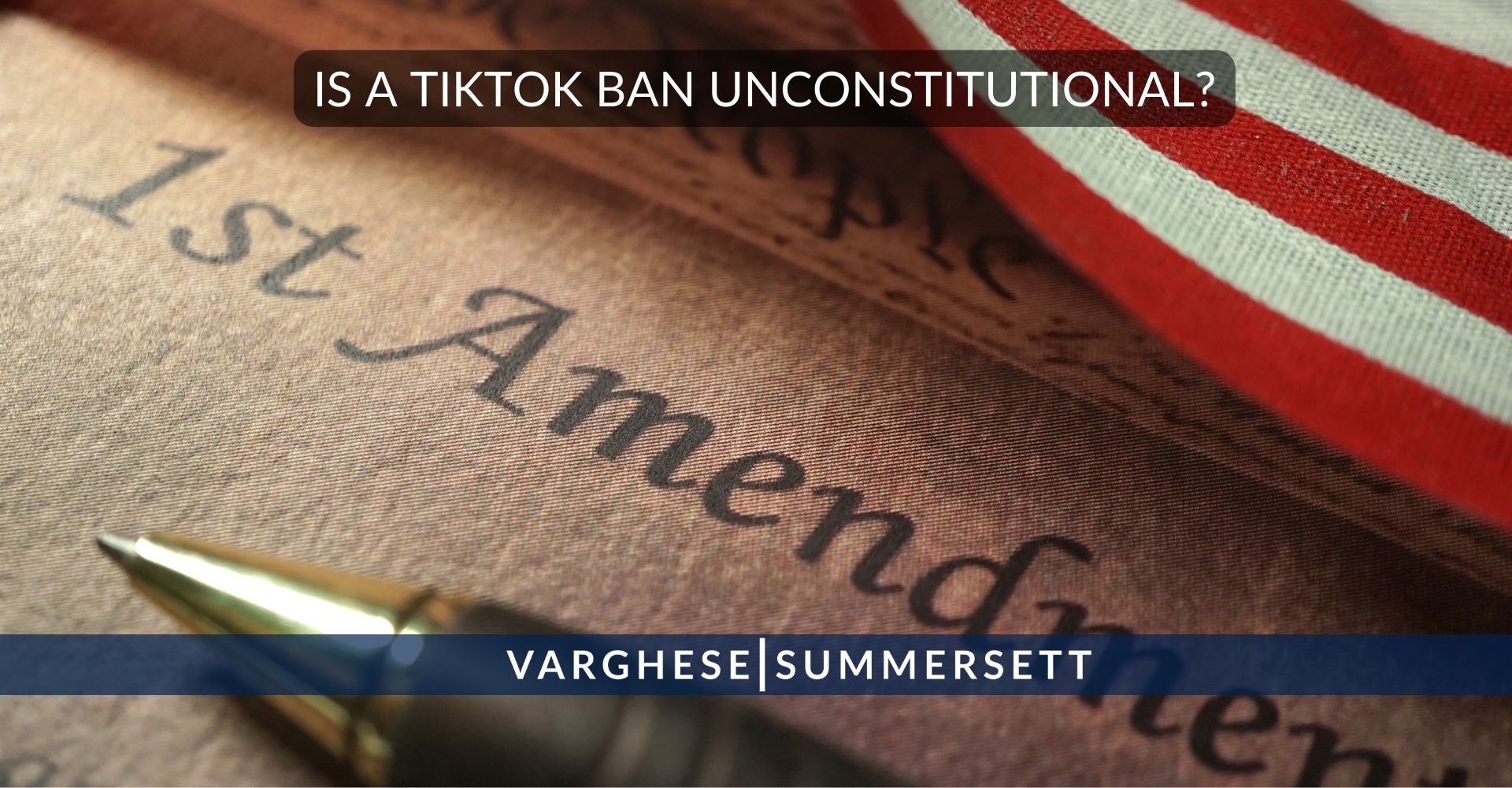
Is it Unconstitutional For Congress to Issue a Nationwide TikTok Ban?
The legality of Congress issuing a nationwide TikTok ban is a complex and contested issue. Here are the key points to consider:
- Constitutional concerns: The American Civil Liberties Union (ACLU) argues that a TikTok ban would violate the First Amendment rights of more than 150 million people in the United States. This suggests that there are significant constitutional challenges to such a ban.
- Legal precedents: In 2020, federal courts blocked an executive order issued by former President Donald Trump to ban TikTok, citing free speech and due process concerns. This indicates that previous attempts to ban the app have faced legal obstacles.
- Potential legal challenges: TikTok has stated that it would likely challenge any ban in court, arguing that it infringes upon the First Amendment rights of its 170 million U.S. users.
- Congressional authority: While Congress has the power to pass legislation, the constitutionality of laws can be challenged in court. The current legislation aims to force a sale of TikTok rather than an outright ban, which may be an attempt to navigate potential legal issues.
- Expert opinions: Some legal experts and politicians, such as Sen. Rand Paul, have predicted that the Supreme Court would ultimately rule a TikTok ban unconstitutional.
- Balancing interests: The government argues that national security concerns justify the potential restrictions on TikTok, while opponents claim it amounts to censorship and infringes on free speech rights.
To be sure, if TikTok is banned, we can expect legal challenges and constitutional scrutiny. The courts would ultimately decide whether the ban is legal and constitutional, balancing national security concerns against First Amendment protections.
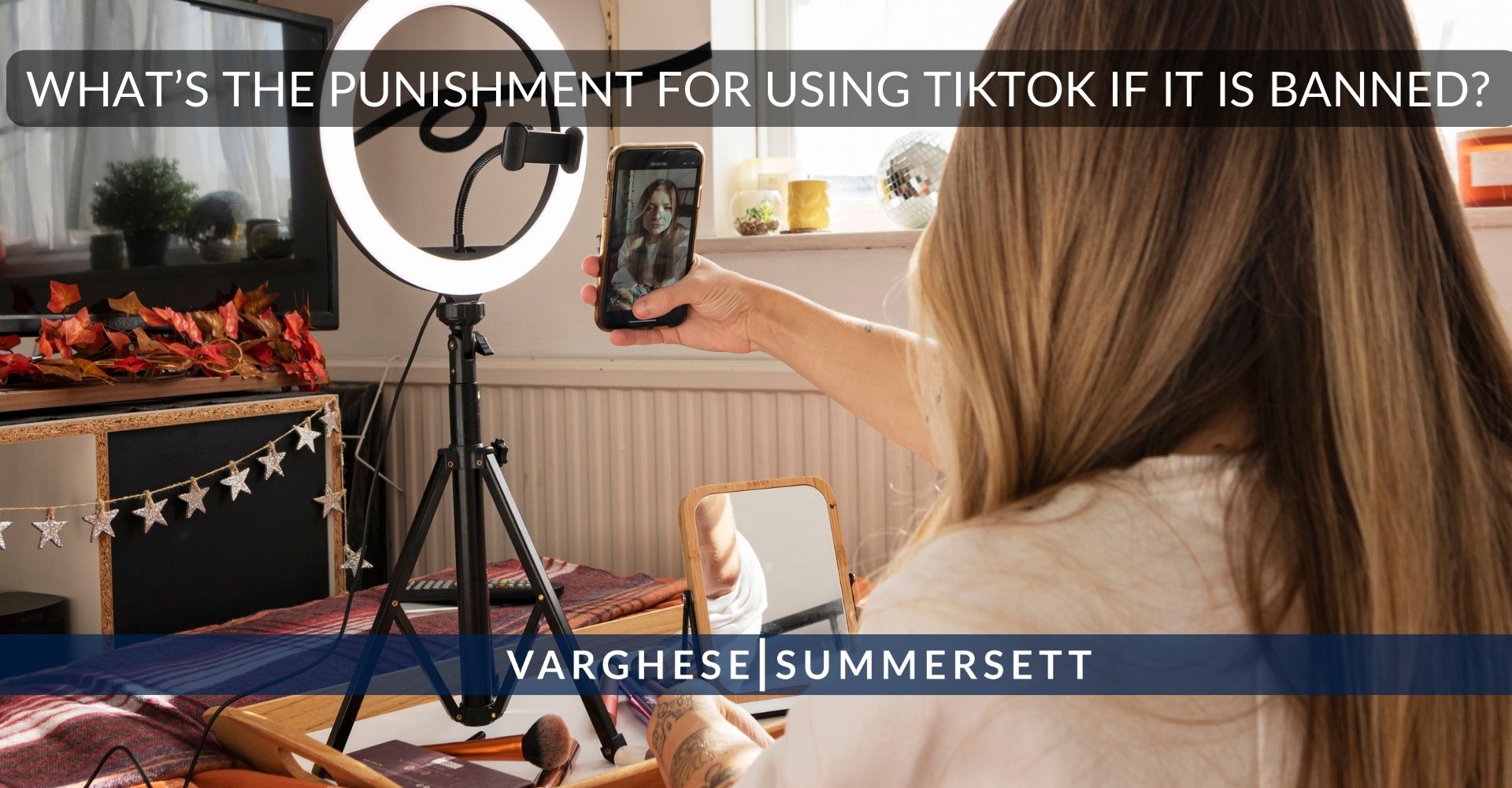
What is the Punishment for Using TikTok if it’s Banned?
If TikTok is banned, it will not immediately disappear from every U.S. user’s phone. People who continue to use the app in America will not be arrested or face criminal penalties. Instead, the app will be removed from U.S. app stores, preventing TikTok from sending updates and bug fixes. This will eventually lead to the app’s decline due to security and functionality issues.
Adapting to a TikTok Ban: Where Users Might Go Next
If TikTok is banned in the U.S., Americans will likely adapt quickly by migrating to alternative platforms. Instagram’s Reels and YouTube’s short vertical videos are strong contenders, often featuring content similar to that on TikTok.
Fortunately, Varghese Summersett is already using all of these platforms so, rest assured, we will still be able to connect and share valuable legal information with you – even if TikTok eventually goes away.
